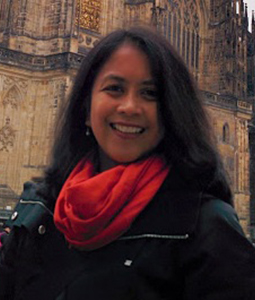Maria Ferrera (Senior CbR Faculty Fellow),

Report 1
Undocumented Immigrant Youth Mental Health Study - by Maria Ferrera (2017)
There are 2.1 million undocumented young people in the United States who were brought to the U.S. as children and who grew up knowing no other country to call home. Research on this population illustrates how they spend their childhood years being socialized into American society without substantive knowledge about their undocumented status. It is often in adolescence that their status becomes a real issue, as undocumented youth experience exclusions from work, travel, and education provisions for the first time (Gonzales, 2016). Despite the significance of this period for undocumented youth development, little is known about how youth understand these first-time experiences and what their psychological impact is.One aim of Dr. Ferrera's project was to examine ways youth with undocumented immigrant status sought to overcome their distinct challenges. A second aim was to draw on our findings to build mental health resources for undocumented youth and mental health, and school practitioners. The project benefited from DePaul student contributions from the course MSW 450 Positive Minority Development: Examining Narratives of Resilience Among Youth of Color. Through the course students were able to develop an understanding of the value of conducting mixed methods research that engages community members.
Report 2
Social Work) (2013)
Despite health care reform efforts, the Affordable Care Act still leaves 11 million undocumented immigrants in the United States uninsured. One of the eight states that houses the bulk of these immigrants is Illinois - many of them Latino and densely populated in Chicago. Utilizing a community-based participatory resesarch (CBPR) approach, this study examined the impact of a program that is trying to address the healthcare dilemma of uninsured, new immigrants within Chicago’s new immigrant communities. The community-based, non-profit agency, Centro Sin Fronteras (CSF), has taken the lead on initiating the Youth Health Service Corps (YHSC) within two Chicago high schools embedded in these predominantly Latino, new immigrant communities. With the support of a group of teaching hospitals and clinics, led by Rush Medical Center, YHSC hopes to train high school aged students to provide education and pre-screening to thousands of people for Diabetes, Hypertension and Heart Disease, Breast and Prostate Cancer and HIV/AIDS. Each member of the Corps will commit to bringing 10 members of their families, neighbors and friends through the pre-screening process and provided those opportunities to enroll in diet and exercise programs at participating churches. Centro Sin Fronteras worked to develop this model for four years, developing instruction and screening protocols with Rush Medical Center. This study examined the impact of this YHSC program, utilizing a mixed methods approach that surveys and interviews the high school students enrolled in YHSC, the friends and family who they have provided outreach to, and the medical professionals and organizational staff that have established and facilitated the program. Considering social network theory and utilizing frame analyses that engages neighborhood narratives (Small, 2002), this study examined the impact of networks among new immigrant youth in Chicago on the health behaviors and access to healthcare among Latino families in their communities.